There is a community of the spirit.
Join it, and feel the delight
of walking in the noisy street
and being the noise.
— Rumi
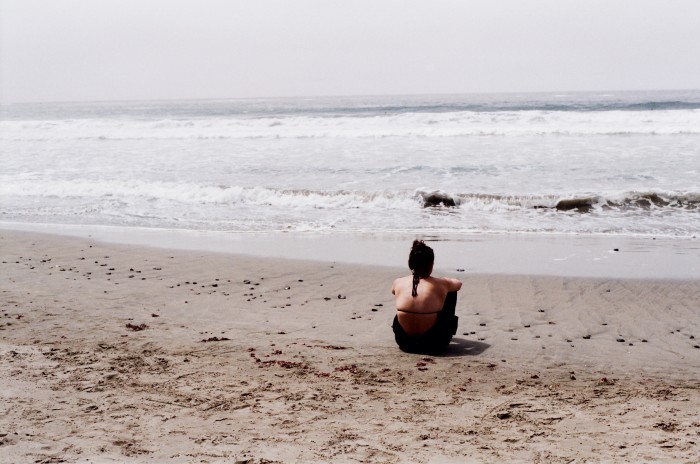 I first encountered the concept of the Oceanic Feeling in college. It was art school, I was 21, at the tail end of my degree — a Bachelor of Fine Arts in Photography. I was hopped up on community and creative energy. Filled to the brim with ideas and readings and theories and projects and still hungry for more. My mind was pliant in ways it had never been before.
I first encountered the concept of the Oceanic Feeling in college. It was art school, I was 21, at the tail end of my degree — a Bachelor of Fine Arts in Photography. I was hopped up on community and creative energy. Filled to the brim with ideas and readings and theories and projects and still hungry for more. My mind was pliant in ways it had never been before.
I’d grown up strictly atheist. My parents were middle-class hippies with no taste for religion — or spirituality, for that matter. God was no friend or fear to us. Christianity, when it came up, was dismissed as the stuff of redneck American bigots — not of sensible, educated Canadian-American families.
Back then — which is to say, all my formative years, from when I first formed my own thoughts through to late high school, when I really first formed my own thoughts — if I thought of religion, of God, I thought of churches and bible study and the deep south. I thought of racism and homophobia and misogyny.
The bare concept I had of Eastern religions boiled down to thinking that Buddhism seemed “kind of cool, I guess.”
Over the years I began to think of religion slightly differently. The main catalyst for this change of thinking was my extended family on my father’s side — his parents and younger sister and her family. All Christians, and deeply. But good people. Kind people. Maybe a little ignorant, certainly. But for all their backwardness, their proud Replublican-isms and hidden bigotries, it could not be said that they were all bad.
They used the church as the centre of their community and as a base from which to do good unto the world.
I began to feel less and less comfortable demonizing an entire group of people. A group of people that included my own kin. Kin who I loved and knew loved me in return. I began to feel that my attitude towards Christianity and religion was a bigotry all its own.
These were the first steps towards what would eventually have me, openly — if shyly — talking about the concept of God, not just once, but many times, in front of my ultra-liberal, ultra-atheist classmates some years later.
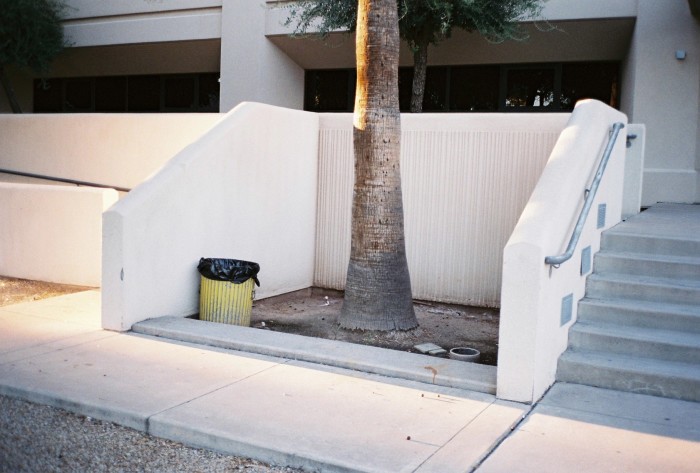
The Oceanic Feeling is a term coined by French writer and mystic, Romain Rolland, but introduced to the world by his more famous pal — one Sigmund Freud.
Those who’ve done their mandated time in Freud-land might recall that he’s a bit skeptical of religion. Suffice to say, Freud is not a believer.
In his 1930 offering, Civilization and its Discontents, Freud begins by describing a correspondence with Rolland that introduced him to the concept of the Oceanic Feeling:
“I had sent [Rolland] my small book that treats religion as an illusion [The Future of an Illusion (1927)], and he answered that he entirely agreed with my judgement upon religion, but that he was sorry I had not properly appreciated the true source of religious sentiments. This, he says, consists in a peculiar feeling, which he himself is never without, which he finds confirmed by many others, and which he may suppose is present in millions of people. It is a feeling which he would like to call a sensation of ‘eternity’, a feeling as of something limitless, unbounded — as it were, ‘oceanic.’”
This Oceanic Feeling, Rolland argued, was the “source of the religious energy which is seized upon by the various Churches and religious systems,”and that, “one may… rightly call oneself religious on the ground of this oceanic feeling alone, even if one rejects every belief and every illusion.”
While Freud claimed, “I cannot discover this ‘oceanic’ feeling in myself,” he certainly seemed to grasp the concept as Rolland explained it, putting it thusly:
“If I have understood my friend rightly, he means the same thing by it as the consolation offered by an original and somewhat eccentric dramatist to his hero who is facing a self-inflicted death. ‘We cannot fall out of this world.’ That is to say, it is a feeling of an indissoluble bond, of being one with the external world as a whole.”
The work he’s quoting is Christian Dietrich Grabbe’s Hannibal. The full snippet being, “Indeed we shall not fall out of this world. We are in it for once and for all.”
Freud spends the rest of Civilizations and its Discontents trying — with little success — to cram this oceanic idea into his preexisting framework of psychoanalysis. Despite his reluctance, he is ultimately unable to discredit the phenomenon of the Oceanic Feeling. As he says:
“From my own experience I could not convince myself of the primary nature of such a feeling. But this gives me no right to deny that it does in fact occur in other people.”
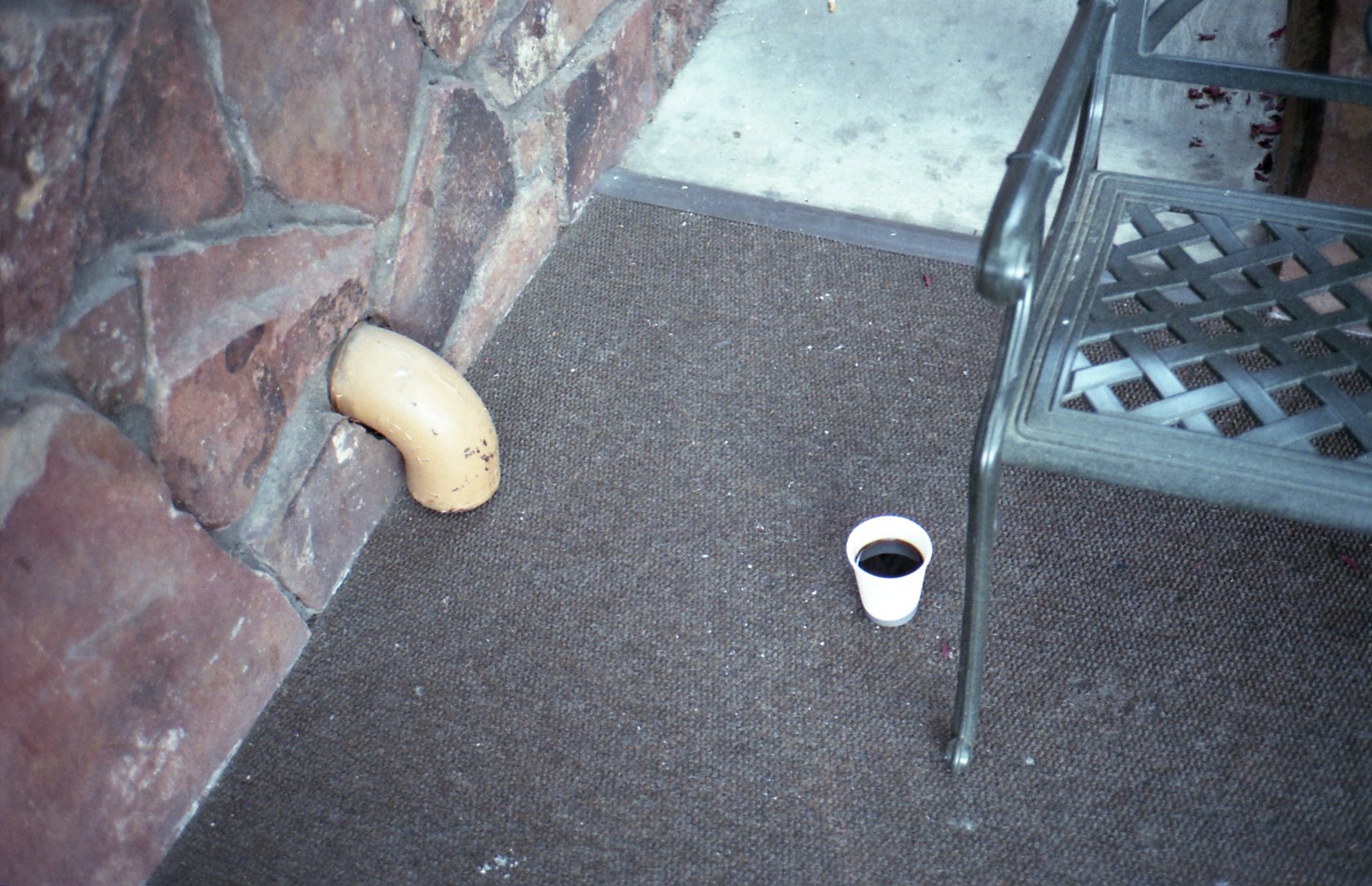
To understand how the concept of the Oceanic Feeling, and subsequently a concept of a God (however abstract), managed to sink in and make a home in my psyche, despite all my ignorance of and early disdain for any use at all of the capital-G God word, one would have to take a fine toothed comb or microscope or other discerning instrument to my situation at the time Civilization and its Discontents found its way onto my academic reading list.
As I mentioned up top, I was in a state of a near creative frenzy — thoroughly dunked in the goo of artistic academia. Everything seemed particularly vital. That’s not to say I didn’t have plenty of uninspiring encounters — with works, readings, other students and professors, but just that the good stuff stuck. Also, by that time in my degree, almost all of my work was self-directed and continuous. Where before I might’ve been working on something for my Intro to Color photography class, something else for my Humor in Sculpture class and something again for my academics, I was now almost singularly focused in on a growing body of work, all alike in tone and style, perspective and intention.
With this narrowing of scope, came too the expectation that us pupils would be increasingly devoted to these works and increasingly able to put into words our deepest conceptualizations.
My photographic work had focused in on a certain documentary style. What one (where “one” is the artist’s own neuroses and self-doubt, personified) might think of as a kind of Poor Woman’s Millenial Stephen Shore Rip-Off.
I knew the kinds of things I liked to photograph — things neither old nor new, both somehow familiar and unfamiliar, the in-between — and yet I had a hard time explaining my interest in these instances.
I had a cocktail of terms and vague ideas that seemed to have something to do with my work, but not enough confidence and clarity to string that dollar store grab bag into a convincing artist’s statement or project proposal.
There was a strong sense within me that I was searching, and of course the act of photographing is in line with that — searching for a photograph. But of course, the romantic-poetic 21 year-old art student wasn’t satisfied with that. It had to be some deeper searching, obviously.
The Pursuit of Happiness, I decided. And weren’t we all scrambling along on that journey already anyway?
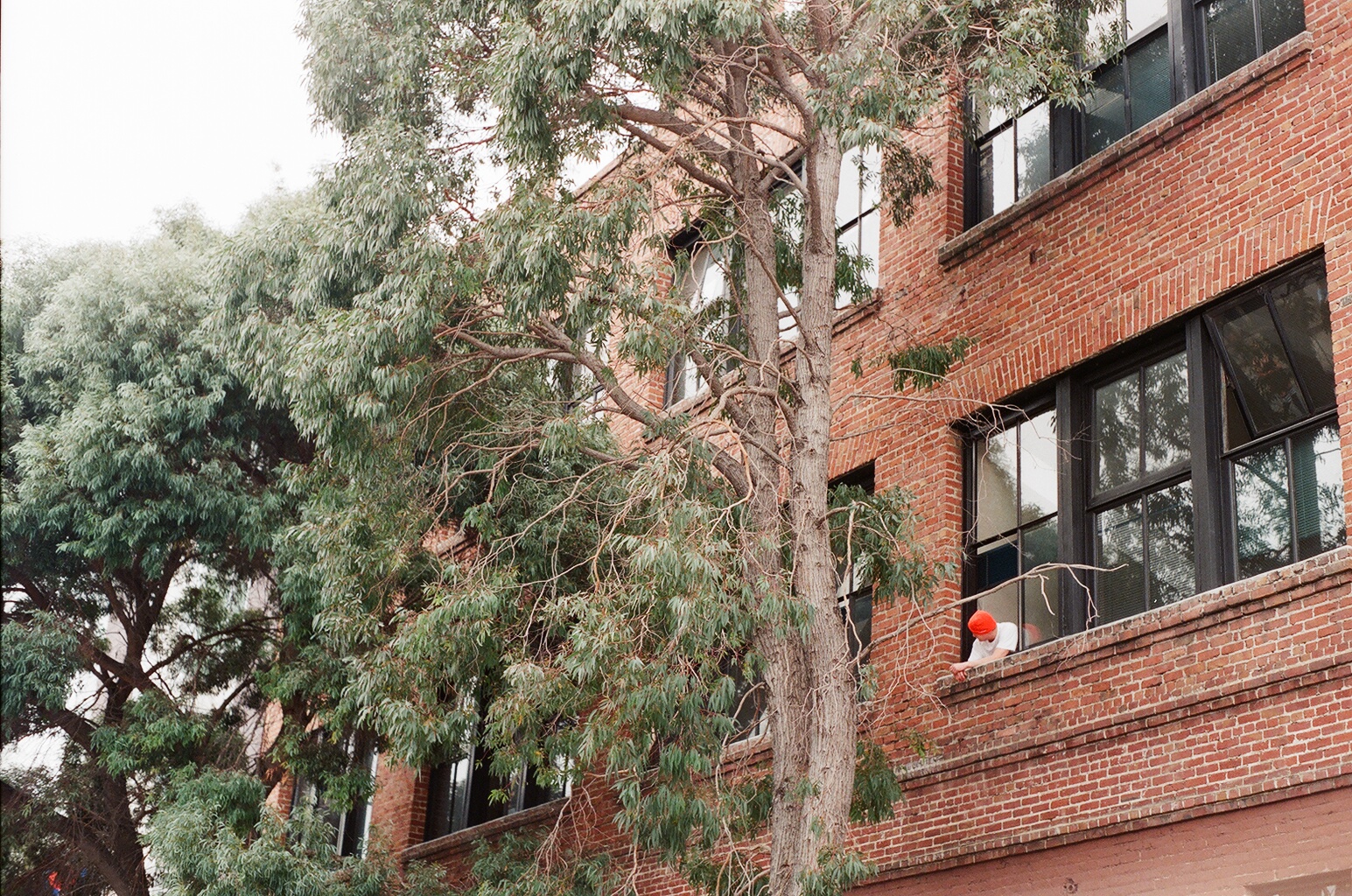
From there, in thinking about the act of photographing, it didn’t seem correct to say that I was merely searching and finding the image, the satisfaction. Because it felt as if, when I found a photograph, that it had already been laid out, waiting for me, the scene, just as it was. That there was some element of fate involved that myself, the pursuer of happiness and art would just come upon the image, so perfect and waiting. There was, I decided, an element of reciprocity involved.
This is where I began to confuse my classmates, I suspect. I would explain how I felt, in finding the photograph, as if I were reaching out my hand and was being reached out to in kind, and that the meeting of these wills, in harmony, resulted in the artistic photograph. I would mime my one hand reaching out and gently clasping my other, all the while, practically whispering in reverence — or so I imagine it must have seemed — that what it was that I was reaching out to and that was reaching back to me was nothing less than The Universe. That I was entering into a reciprocal relationship with The Universe.
As I recall, I mostly got responses of polite nodding and blank eyes. This only made me desperate for even better language to describe this newfound artistic collaboration I felt I had entered into — or rather, had become aware of, as clearly it had been serving me all this time.
So, when I came upon the concept of the Oceanic Feeling tucked into the beginning pages of what was otherwise a tiresome reading for a tiresome academic requirement, I was, of course, thrilled.
I was already in deep contemplation about having a relationship with the universe, now I just had even more words to put to that feeling — and not just any words, but academic words, written by people who weren’t me. Reading about this Oceanic Feeling, this limitless, indissoluble bond with all that is and will be — it felt like being seen. It felt like vindication. It felt real.
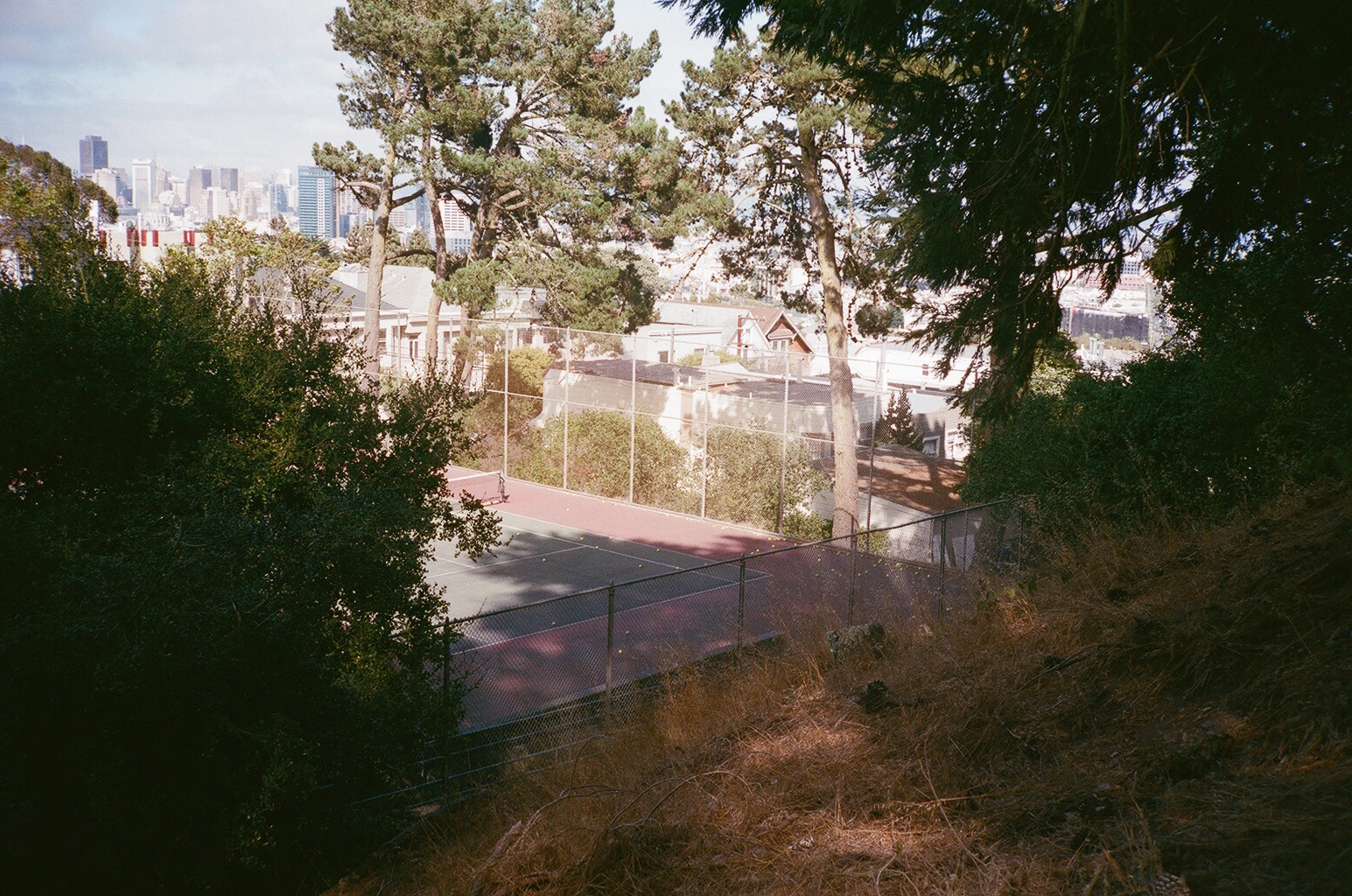
Still, I maintained a certain discomfort with the religious connotations of Rolland and Freud’s discussion of the Oceanic Feeling. It was certainly one thing to be spiritual, I reasoned. With my neuroses and anxieties, I was already prone to magical thinking and looking for signs — ostensibly from The Universe. So this reciprocal relationship, “connected to all matter” stuff just seemed like a little walk down the street and around the corner from those more casual mysticisms.
But God? A whole other thing.
While I’d long ago shed my hot disdain for the religiously organized — Christians in particular — I still had a sort of knee jerk ugh reaction to all that God stuff. Plus, even if I didn’t totally hate the idea of some abstract God-concept, it just wasn’t cool. The coolest kids at art school were the kids who were the most queer in every sense of the word. Believing in God — or even god — was so square.
It was Franny & Zooey that finally did it.
By that time I’d read the novel at least a dozen times already. It was a favorite, but up until then, I’d considered it purely fiction. Now, with this looming religion business in my own life, it had gained a new poignancy.
For the non-fans of Salinger and the Only-Read-Catcher-In-The-Rye crowd — Franny & Zooey is a two part novel (originally written as a short story and novella, respectively, and published in the New Yorker, some years apart). Focusing on the youngest children of Salinger’s Glass family — Franny and Zooey — and their twin modern day ennuis, which reveal themselves to be rooted largely in religious dysfunction.
The climactic scene of the book is a phone call between our two titular characters. To get the most full-ish effect (read the book!) — I’ll copy the most relevant passage wholesale. Know that this section comes from the very end of the book — so one might want to skip it if they care about that kind of thing.
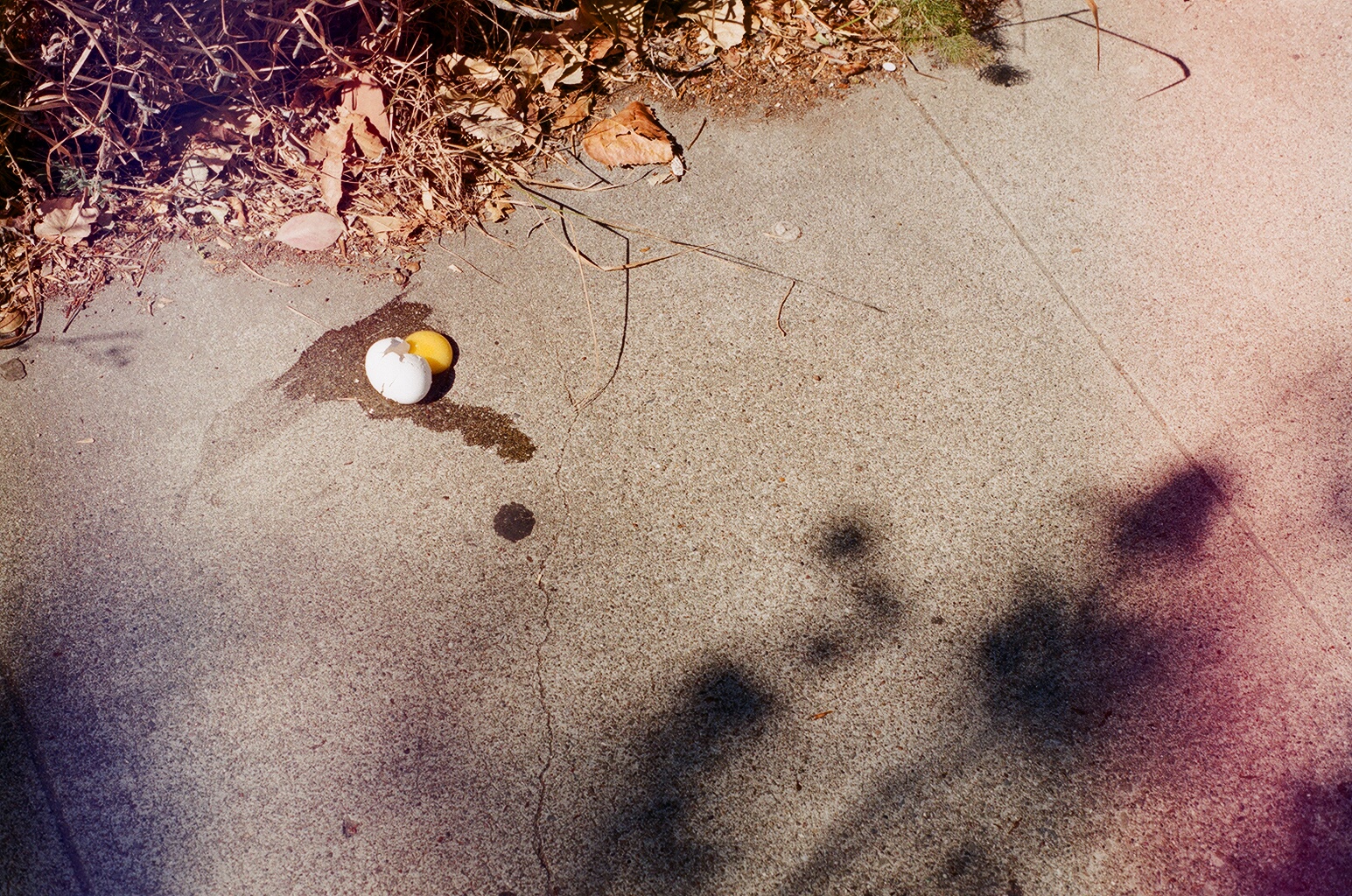
A few details that might be helpful to know, for those who aren’t already familiar with Franny & Zooey — Seymour is the oldest of the Glass siblings, a kind of Christ-like figure, who, along with the second eldest Glass child, Buddy, led Franny and Zooey’s religious education when they were children. Secondly, all the Glass children were at one time or another panelists on a children’s radio quiz show called “It’s A Wise Child.” Lastly, Zooey is a television actor, and Franny has been doing theatre in college.
“The voice at the other end came through again. “I remember about the fifth time I ever went on ‘Wise Child.’ I subbed for Walt a few times when he was in a cast — remember when he was in that cast? Anyway, I started bitching one night before the broadcast. Seymour’d told me to shine my shoes just as I was going out the door with Waker. I was furious. The studio audience were all morons, the announcer was a moron, the sponsors were morons, and I just damn well wasn’t going to shine my shoes for them, I told Seymour. I said they couldn’t see them anyway, where we sat. He said to shine them anyway. He said to shine them for the Fat Lady. I didn’t know what the hell he was talking about, but he had a very Seymour look on his face, and so I did it. He never did tell me who the Fat Lady was, but I shined my shoes for the Fat Lady every time I ever went on the air again — all the years you and I were on the program together, if you remember. I don’t think I missed more than just a couple of times. This terribly clear, clear picture of the Fat Lady formed in my mind. I had her sitting on this porch all day, swatting flies, with her radio going full-blast from morning till night. I figured the heat was terrible, and she probably had cancer, and — I don’t know. Anyway, it seemed goddam clear why Seymour wanted me to shine my shoes when I went on the air. It made sense.”
Franny was standing. She had taken her hand away from her face to hold the phone with two hands. “He told me, too,” she said into the phone. “He told me to be funny for the Fat Lady, once.” She released one hand from the phone and placed it, very briefly, on the crown of her head, then went back to holding the phone with both hands. “I didn’t ever picture her on a porch, but with very — you know — very thick legs, very veiny. I had her in an awful wicker chair. She had cancer, too, though, and she had the radio going full-blast all day! Mine did, too!”
“Yes. Yes. Yes. All right. Let me tell you something now, buddy. . . Are you listening?”
Franny, looking extremely tense, nodded.
“I don’t care where an actor acts. It can be in summer stock, it can be over a radio, it can be over television, it can be in a goddam Broadway theatre, complete with the most fashionable, most well-fed, most sunburned-looking audience you can imagine. But I’ll tell you a terrible secret — Are you listening to me? There isn’t anyone out there who isn’t Seymour’s Fat Lady. That includes your Professor Tupper, buddy. And all his goddam cousins by the dozens. There isn’t anyone anywhere that isn’t Seymour’s Fat Lady. Don’t you know that? Don’t you know that goddam secret yet? And don’t you know — listen to me, now — don’t you know who that Fat Lady really is? . . . Ah, buddy. Ah, buddy. It’s Christ Himself. Christ Himself, buddy.”
So there.
It seemed clear then, that this Oceanic Feeling, this oneness between all things, perhaps was a God thing.
Though Franny and Zooey were certainly discussing a more concrete religious idea of God, I certainly didn’t have to take it that way.
I simply began to see God as an interchangeable term for The Universe. That entity with which I was inextricably linked and in ongoing dialogue with. Me and every other soul, being or creature. The guy next to me on the bus, the water in the ocean, the ground under my feet. Each atom and particle. Even hopes and dreams and immaterial things. All of us bound up in a shared destiny, riding on one big wave together.
It was certainly a pleasant thought.

I began to apply this newfound understanding to my work. My thoughts were still largely muddled on the topic, and trying to explain these ideas, of the Pursuit of Happiness, Reciprocity, The Oceanic Feeling, The Universe, God, often continued to fall flat.
The fact is, I was talking about a divine intervention in my work, and yet the images themselves did not speak of God, seemed to hold no trace of something more or greater. It was difficult for my peers and professors to look at my photographs, in all their banality, and reconcile that with the concepts I claimed lived within the work.
Still, it made sense to me. Though I’ll admit, this failure to communicate frustrated me. Especially when trying to explain myself constantly felt as if I was out on a limb, vulnerable and open to their worst criticisms.
At the height of my spiritual and artistic clarity I was delivering class presentations with powerpoint title cards that read THE OCEANIC FEELING, large font, white text on black. Looking back, they were fairly unintelligible. Slides with Stephen Shore and Rineke Djikstra photographs, interspersed with quotes from Civilizations and its Discontents and capped off with a live reading of Franny & Zooey’s phone call enlightenment.
What I was failing to explain was that the images themselves, that is, the specifics of what they looked like, had little to do with this philosophy — that they were banal images, if distinct, and a little strange somehow, was exactly the point. God is in the banal.
It was always the searching that interested and satisfied me the most. The product of the finished photograph was somewhat secondary and the sharing and display of the photograph almost completely irrelevant.
All the time it was about The Pursuit. The chance that if we open ourselves up to the world, with camera in hand or without, we might just meet God in the form of a tiny bird, hiding under a bus shelter from the Arizona sun.
Late, by myself, in the boat of myself, no light and no land anywhere, cloud cover thick.
I try to stay just above the surface, yet I’m already under and living within the ocean.
— Rumi

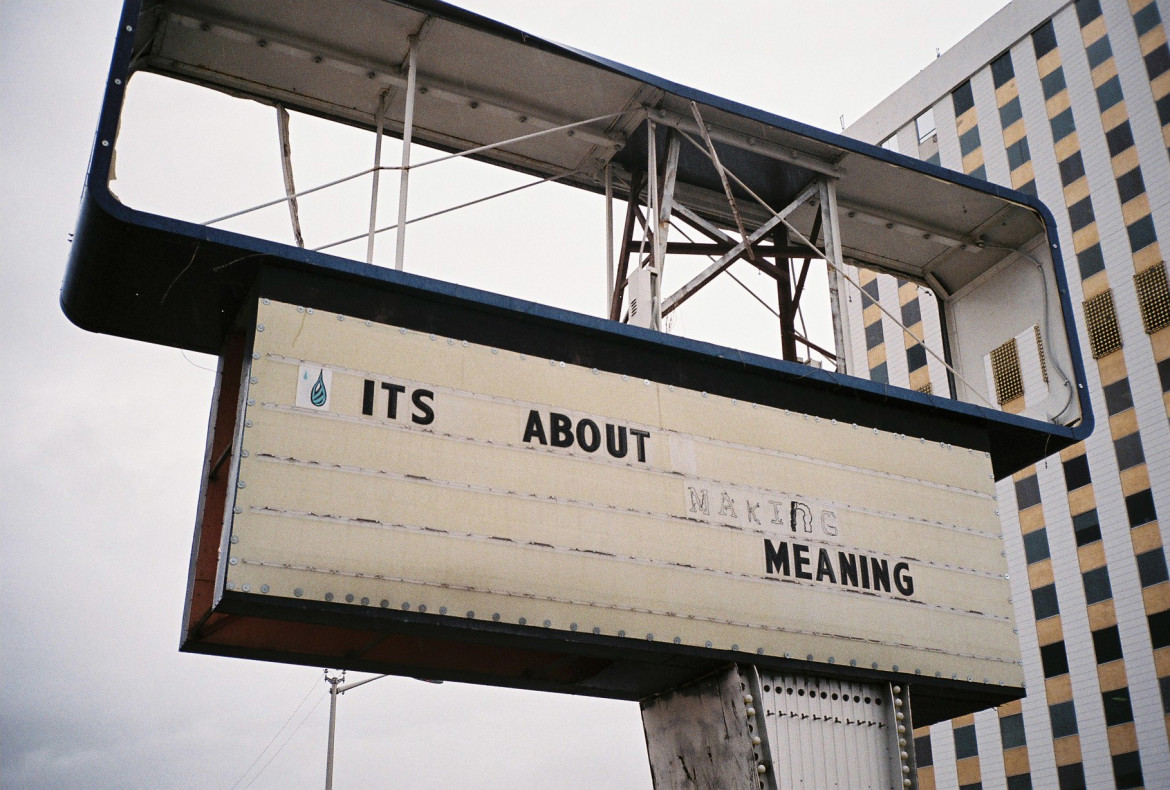





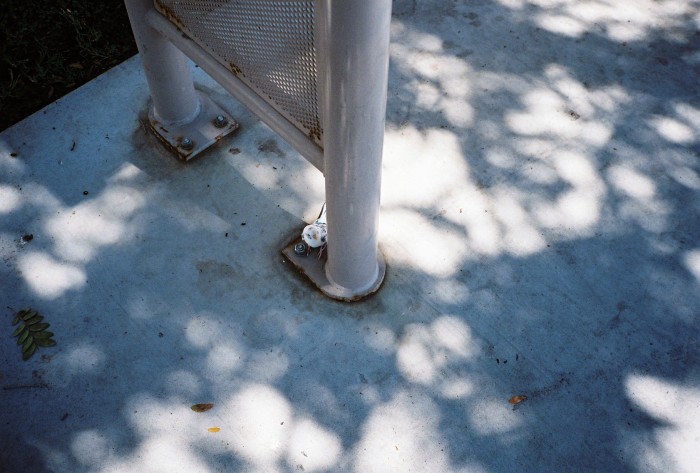
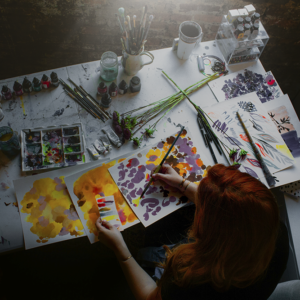

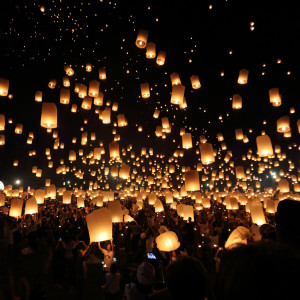

Leave a reply